MIE Faculty
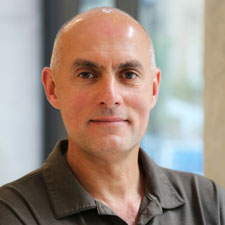
PhD, LEL
Associate Professor, Industrial Engineering
Email: consens@mie.utoronto.ca
Tel: 416-946-8851
Office: BA8128
Research Areas
Information Engineering
Applied Machine Learning
Research Interests
Data management and the web; big data and analytics; blockchains, graph data management, linked data on the web; data visualization; information retrieval; data modelling; business process engineering; privacy and healthcare data management; autonomic systems
Bio
Mariano Consens received his PhD and MSc degrees in Computer Science from the University of Toronto. He also holds a Computer Systems Engineer degree from the Universidad de la Republica, Uruguay. Professor Consens has over 60 publications, including journal publications selected from best conference papers and several patents.
Professor Consens has been a faculty member in Information Engineering in the Department of Mechanical & Industrial Engineering, University of Toronto, since 2003. Before that, he was research faculty member at the School of Computer Science, University of Waterloo, from 1994 to 1999. In addition, he has been active in the software industry as a founder, director, and CTO of a couple of software start-ups. He was as a Visiting Scientist at Yahoo! Research during his sabbatical, and is currently a Visiting Scientist at the IBM Center for Advanced Studies in Toronto.
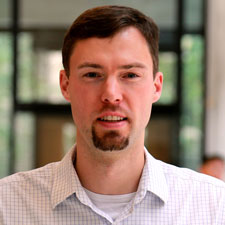
PhD, P.Eng
Professor, Mechanical Engineering
Associate Chair of Graduate Studies
Clarice Chalmers Chair in Engineering Design
Email: ediller@mie.utoronto.ca
Tel: 416-978-1214
Office: MB116
Research Group: Microrobotics Laboratory
Research Area
Robotics
Research Interests
Micro-scale robotics; bio-inspired design; magnetic actuation; dynamics and control; mobile robotics; manipulation; wireless actuation; non-invasive medical devices.
Bio
Dr. Diller received his B.S. and M.S. in Mechanical Engineering at Case Western Reserve University, and Ph.D. at Carnegie Mellon University in 2013. His work is enabling a new approach to non-invasive medical procedures, micro-factories and scientific tools. He does this by shrinking the mechanical and electrical components of robots to centimeter, millimeter or even micrometer size. He uses magnetic fields and other smart-material actuation methods to make mobile functional devices. Dr. Diller envisions a future where drug delivery and surgery can be done in a fast, painless and focused way, and where new materials and devices can be manufactured using swarms of tiny gripping, cutting, and sensing wireless robots.
Dr. Diller has received the MIE Early Career Teaching Award, the UofT Connaught New Researcher Award, the Ontario Early Researcher Award, and the I.W. Smith Award from the Canadian Society for Mechanical Engineers.
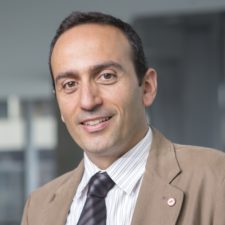
PhD, P.Eng., FCSME
Professor, Mechanical Engineering
Associate Chair, Research
Email: dolat@mie.utoronto.ca
Tel: 416-978-4631
Office: BA8252
Centre for Advanced Coating Technologies (CACT)
Mechanical Inter-Disciplinary Laboratory (MIND lab)
Research Areas
Thermofluids
Materials
Research Interests
Multiphase flows and sprays, heat transfer and phase change, CFD, suspension thermal spray processes, cold spray additive manufacturing, aerosol deposition, superhydrophobic, icephobic, and slippery coatings.
Bio
Ali Dolatabadi is a Professor in the Department of Mechanical and Industrial Engineering at the University of Toronto. He received a BASc from University of Science and Technology, MASc from University of Tehran, and PhD from the University of Toronto (2002). Prior to joining the University of Toronto, he was a Tier 1 Concordia University Research Chair in Multiphase Flow and Thermal Spray. He is the founder and co-director of the Thermal Spray and Surface Engineering (TSSE) Research Centre at Concordia University. Dr. Dolatabadi has established research collaborations with a number of industry partners including Airbus, Pratt & Whitney, Bombardier, Siemens, and Rolls-Royce.
Dr. Dolatabadi’s research on multiphase flows develops fundamental understanding of sprays for thermal spray processes, and of droplet dynamics, heat transfer and phase change for development and characterization of novel functional coatings. His research group has developed electro-catalytically active electrodes for hydrogen evolution, micro filtration membranes, superhydrophobic, icephobic, and slippery coatings.
Dr. Dolatabadi is the recipient of Young Research Achievement Award and member of Provost’s Circle of Distinction, Concordia University. He has received multiple awards for excellence in teaching, including the President’s Award in 2018. He served as a member and co-chair of the NSERC-DG evaluation group, mechanical engineering (2016-2019) and also CRIAQ/CARIC Scientific evaluation committee (2018-2021). He was elected the President of the Canadian Society for Mechanical Engineering (CSME) from 2014 to 2016. Currently, he is the President of the Engineering Institute of Canada (EIC).
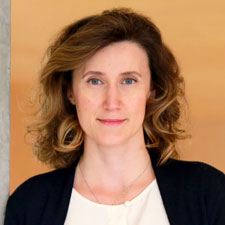
PhD, P.Eng
Professor, Industrial Engineering
Canada Research Chair in Human Factors and Transportation
Email: birsen.donmez@utoronto.ca
Tel: 416-978-7399
Office: 800 Bay St., RM 315
Research Group: Human Factors & Applied Statistics Lab
Research Area
Human Factors
Research Interests
Human factors; human adaptation to technology; designing feedback for guiding operator behavior; driver distraction mitigation; statistical modelling of crash data; decision support for emergency medical transport; interruptions in intensive care settings; unmanned vehicle supervisory control.
Bio
Professor Birsen Donmez joined the Department of Mechanical & Industrial Engineering in January 2010. She received her BS in Mechanical Engineering from Bogazici University in 2001, her MS (2004) and PhD (2007) in industrial engineering, and her MS in statistics (2007) from the University of Iowa. Before joining the University of Toronto, she spent two years as a postdoctoral associate at the Massachusetts Institute of Technology. She is the Canada Research Chair in Human Factors and Transportation.
Professor Donmez’s research interests are centered on understanding and improving human behavior and performance in multi-task and complex situations, using a wide range of analytical techniques. In particular, her research focuses on operator attention in multitask activities, decision support under uncertainty, and human automation interaction, with applications in various domains including surface transportation, healthcare, mining, and unmanned vehicle operations. Professor Donmez received an NSERC Discovery Accelerator Supplement (2016), the inaugural Stephanie Binder Young Professional Award from the HFES Surface Transportation Technical Group (2014), an Early Researcher Award from the Ministry of Economic Development and Innovation of Ontario (2015), the Early Career Teaching Award from the U of T Department of Mechanical and Industrial Engineering (2013), a Connaught New Researcher Award from the University of Toronto (2011), the Dr. Charles H. Miller Best Paper Award from the Canadian Association of Road Safety Professionals (2010), and a Dwight David Eisenhower Graduate Fellowship from the U.S. Department of Transportation (2006). She has served on multiple committees of the Transportation Research Board of the National Academies, as an associate editor for IEEE Transactions on Human-Machine Systems, and as the General Chair for AutomotiveUI’18. Her research has been featured by the CBC, Global TV News, Globe and Mail, and Toronto Star.
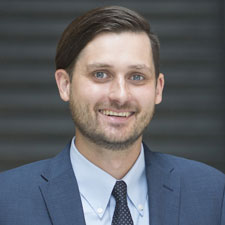
PhD, P.Eng
Professor, Mechanical Engineering
Email: filleter@mie.utoronto.ca
Tel: 416-978-5877
Office: MB115
Research Group: NanoMechanics and Materials Laboratory (NanoM2)
Research Areas
Materials
Mechanics & Design
Research Interests
Nanomechanics of advanced materials; Nanotribology of ultrathin films and lubricants; MEMS based in-situ SEM/TEM characterization; Energy efficient nanomaterials; Multiscale mechanics of hierarchical fibers/composites; Tribology of MEMS/NEMS.
Bio
Tobin Filleter is currently a Professor in the Department of Mechanical & Industrial Engineering at the University of Toronto. Prior to joining the MIE department at U of T, Dr. Filleter was a postdoctoral research fellow in the Department of Mechanical Engineering at Northwestern University (2009-2012). Dr. Filleter received a BSc (Eng.) in Engineering Physics from Queen’s University (2003) and PhD in Physics from McGill University (2009). During his PhD Dr. Filleter also spent time in Germany as a visiting scientist at the INM-Leibniz Institute for New Materials.
Professor Filleter’s research interests are in nanomechanics of materials. Specific areas of research include nanotribology, mechanics of 2D materials, nanocomposites, and non-destructive testing. He has authored papers in many top international journals including Nature, Nature Materials, Science Advances, and Nature Communications. He is the recipient of several major awards including the Erwin Edward Hart Professorship, CSME I.W. Smith Award, and Ontario Early Researcher Award.
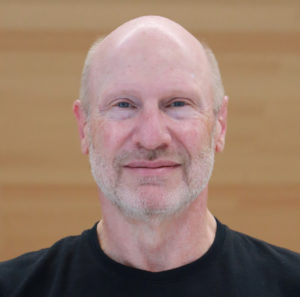
PhD FAAAI FIEEE FEIC LEL Connaught Scholar
Professor Emeritus of Industrial Engineering and Computer Science
Distinguished Professor of Urban Systems Engineering
Founding Director, Centre for Social Services Engineering
Head, Enterprise Integration Laboratory
Email: msf@mie.utoronto.ca
Tel: 416-978-6823
Office: BA8114
Research Group: Enterprise Integration Laboratory (EIL)
Research Areas
Information Engineering
Applied Machine Learning
Research Interests
Application of Ontologies and Constraint-Directed Reasoning to the modelling, analysis and operation of urban systems.
Bio
Dr. Fox received his BSc in Computer Science from the University of Toronto in 1975, and his PhD in Computer Science from Carnegie Mellon University in 1983. In 1979 he was a founding member of the Robotics Institute of Carnegie Mellon University as well as the founding Director of the Intelligent Systems Laboratory within the Institute. He co-founded Carnegie Group Inc. in 1984, a software company that specialized in Artificial Intelligence-based systems for solving engineering, manufacturing, and telecommunications problems, and was its Vice-President of Engineering and President/CEO. Carnegie Mellon University appointed him Associate Professor of Computer Science and Robotics in 1987 (with tenure in 1991). In 1988 he was the founding Director of the Center for Integrated Manufacturing Decision Systems at Carnegie Mellon. In 1991, Dr. Fox returned to the University of Toronto where he was appointed the NSERC Research Chairholder in Enterprise Integration, and Professor of Industrial Engineering and Computer Science. In 1992, he was appointed Director of the Collaborative Program in Integrated Manufacturing. In 1993, Dr. Fox co-founded and was CEO Novator Systems Ltd., a pioneer in E-Retail software and services. From 1994-98 is represented Canada on the Intelligent Manufacturing Systems Global Program Scientific Committee. In 2013 he was appointed a Senior Fellow of the Global Cities Institute at the University of Toronto, and an Academic Advisor to the iCity Lab, Singapore Management University.
In 2014, he was the founding director of the Centre for Social Services Engineering in the Faculty of Applied Sciences and Engineering who goal is to apply engineering principles to the design and delivery of social services to the vulnerable in our society.In 2015 he was named a University of Toronto Distinguished Professor of Urban Systems Engineering.
Dr. Fox’s early research pioneered the application of Organization Theory to the design of distributed systems, contributing to the formation of multi-agent systems and Coordination Theory. His scheduling research resulted in the creation of the field of Constraint-Directed Scheduling within Artificial Intelligence, and several commercially successful scheduling systems and companies. He also pioneered the application of Artificial Intelligence to project management, simulation, and engineering design. He was the designer of one of the first commercial industrial applications of expert systems: PDS/GENAID, a steam turbine and generator diagnostic system for Westinghouse, which was a recipient of the IR100 in 1985 and is still in commercial use today at Siemens, monitoring over 1000 turbines and generators worldwide. He was the co-creator of the Knowledge Representation SRL from which Knowledge Craft™, a commercial knowledge engineering tool, was derived, and KBS, from which several commercial knowledge-based simulation tools, including Simulation Craft™, were derived. He co-developed the primary methodology used globally for designing ontologies based on Competency Questions. He led the well-known TOVE project that developed ontologies for modelling the structure, resources and behaviour of enterprises. His current research focuses on the ontologies and common-sense reasoning, and their application to Smart Cities. He has developed ontologies for the representation of city information and knowledge that are being adopted by cities around the world.
Dr. Fox was elected a Fellow of Association for the Advancement of Artificial Intelligence (AAAI) in 1991, a Joint Fellow of the Canadian Institute for Advanced Research and PRECARN in 1992, a Fellow of the Engineering Institute of Canada in 2009, and a recipient of the CP Rail Medal in 2011. He is a past AAAI councillor, and co-founder of the AAAI Special Interest Group in AI in Manufacturing. Dr. Fox has published over 200 papers.
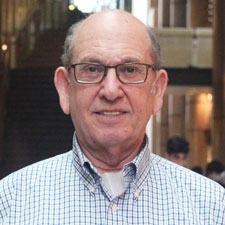
PhD, P.Eng
Professor, Teaching Stream, Industrial Engineering
Email: frances@mie.utoronto.ca
Tel: 416-946-7435
Office: MC318
Research Areas
Operations Research
Research Interests
Application of simulation techniques to health care and manufacturing; Ontario electricity market; interfaces between operations research and information systems.
Bio
After obtaining a PhD from MIE in 1974, joined University of Manitoba as an Assistant Professor. In 1976, he moved back to Toronto and joined Ontario Hydro (predecessor of Hydro One, Ontario Power Generation, and IESO), developing and implementing various Operations Research models, and later managing the groups responsible, for improved operation of the Ontario Power System, including non-linear network optimization models, and database models. Upon joining MIE, Dr. Frances taught various courses in the OR and Information Systems areas, as well as consulting assignments with various organizations including OPG, Hatch, Pratt & Whitney, Canadian Blood Services and Victoria Order of Nurses.
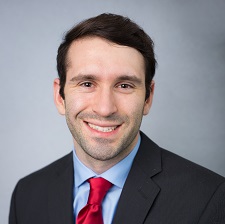
PhD, P.Eng.
Associate Professor, Mechanical Engineering
Email: kevin.golovin@utoronto.ca
Tel: 416-978-0707
Office: MC306C
Research Group: The Durable Repellent Engineered Advanced Materials (DREAM) Laboratory
Research Areas
Materials
Thermofluids
Research Interests
Coatings; surfaces; interfacial mechanics; textiles; polymers; sustainability; adhesion; wettability; drag reduction; metamaterials; anti-fouling
Bio
Kevin Golovin is an Associate Professor in Mechanical & Industrial Engineering at the University of Toronto. Golovin holds degrees in Material Science & Engineering from Cornell University (B.S.) and the University of Michigan (Ph.D.). He currently leads the Comfort Optimized Materials For Operational Resilience, Thermal-transport, and Survivability (COMFORTS) Micro-net, a large-scale, interdisciplinary network sponsored by DND, investigating improved soldier protection and comfort. Other DND-funded projects include the development of advanced soldier uniforms, anti-icing coatings, sensor-embedded coatings, and anti-bacterial fabrics. Golovin additionally collaborates extensively with industry, with partners including Boeing, Arc’teryx, lululemon, FPInnovations, Loop Recycled Products, and PRE Labs.
Golovin has received numerous awards and accolades, including the 2018 ProQuest Distinguished Dissertation Award and the 2016 Patagonia Eco Innovation Case Competition Grand Prize. In 2020 he was named an Emerging Leader in Chemical Engineering by the Canadian Society for Chemical Engineering (CSChE). Golovin has filed 9 patents, one of which is currently licensed.
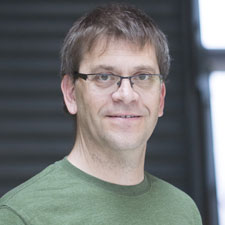
PhD, LEL
Professor, Industrial Engineering
Associate Chair of Undergraduate Studies
Email: gruninger@mie.utoronto.ca
Tel: 416-946-8853
Office: BA8122
Research Group: Semantic Technologies Laboratory
Research Area
Information Engineering
Research Interests
Ontologies; semantic integration; process modelling; enterprise integration; semantic web; knowledge representation; mathematical logic.
Bio
Michael Grüninger is a Professor at the University of Toronto. He returned to Canada after spending five years as an Assistant Research Scientist in the Institute for Systems Research at the University of Maryland College Park and also a Guest Researcher at the National Institute for Standards and Technology (NIST).
Before that, Michael was a Senior Research Scientist in the Enterprise Integration Laboratory of the Department of Mechanical and Industrial Engineering at the University of Toronto. Michael received his Ph.D. and M.Sc. in Computer Science at the University of Toronto and his B.Sc. in Computer Science at the University of Alberta.
His current research focuses on the design and formal characterization of theories in mathematical logic and their application to problems in manufacturing and enterprise engineering. His most recent work on the Process Specification Language has been published as an International Standard (ISO 18629).

PhD
Professor, Mechanical Engineering
Email: guenther@mie.utoronto.ca
Tel: 416-978-1282
Office: MC416
Research Group: Guenther Lab – Fluidic Microprocessors for Life & Material Sciences
Research Area
Thermofluids
Research Interests
Fluid flow and transport at small length scales; organized soft materials; microsystems design; micro and nanofabrication; fluidic microprocessors; high-throughput screening; small blood vessel structure and function.
Bio
The Guenther Research Group draws from the areas of fluid mechanics, colloidal material synthesis, as well as micro/nanofabrication. We investigate fundamentals of transport processes associated with micro/nanoscale flows and aim at translating these fundamentals into unique and powerful technical solutions. We are particularly interested in realizing dynamically changing microenvironments for applications in materials science and biomedicine. Current applications include the controlled preparation of colloidal nanostructures in microreactors, high-throughput platforms for functional tests of small blood vessels with relevance to biopharmaceutical drug discovery, and microfluidic strategies for probing cellular decision processes.